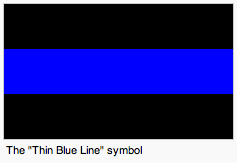
There are many words over the course of a lifetime that are monumental.
Marriage.
Children.
Moving.
I’ve done all of those. Some more than once. And true to form, each time was monumental. My life changed forever.
I remember.
Right after I graduated from high school, I chose to live in Central America for nine months. (Long story.)
“You will never be the same.” Several adults said to me before I left. They would look beyond me. A far off expression in their eyes. Like they could see into my future. Or maybe they were looking into their past. Either way, it creeped me out a little and I grew tired of hearing it.
I remember.
I resigned myself to a smile and nod in response. What does one say to that? It sounded more like a sentencing of sorts than “Bon voyage and God-speed.” I dismissed it. (Eighteen year olds are extremely gifted in that regard.)
And I left. Nine months later, I came home. A different person. A gestational period of change. I grew up, slightly. I burnt rice, horribly. I gained weight, understandably. And I changed, unavoidably.
I could not be the same. Or at least, I could no longer view the world the way I had before. I lived with children who suffered from Malaria and gun-shot wounds. Men and women in their thirties who looked twice their age. The ravages of survival etched in the many lines on their faces.
I remember.
That was a long time ago. I’ve married, had children, moved. More people are added to my world. A spouse, a child, a neighbor.
And each time, I’m changed.
I remember.
And now? Now, we are on the verge of another monumental word.
Retirement.
My husband is ending a career in law enforcement. We are moving. Saying good-bye. Bon voyage. And I have to remember the past to gain the strength to look toward the future.
Today especially has been stressful. So many unknowns. Will everything work out with the house? Will it close escrow in time? Can I survive living forty minutes from Starbucks? What will our lives look like?
Unanswerable questions that swirl around in my mind like a storm, attempting to destroy whatever it touches.
So, I remember. Monumental has come and gone. I’m still standing. And not alone. A spouse, children, friends, neighbors, colleagues. Familiar faces cross my mind and touch my heart.
I’ll never be the same.
And I remember.


